Filter by
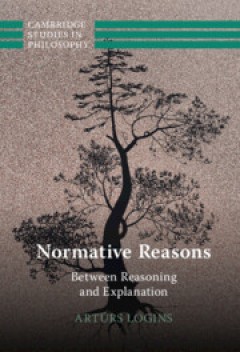
Normative Reasons : Between Reasoning and Explanation
Reasons matter greatly to us in both ordinary and theoretical contexts, being connected to two fundamental normative concerns: figuring out what we should do and what attitudes to have, and understanding the duties and responsibilities that apply to us. This book introduces and critiques most of the contemporary theories of normative reasons considerations that speak in favor of an action, beli…
- Edition
- -
- ISBN/ISSN
- 9781009076012
- Collation
- ix, 254 p
- Series Title
- -
- Call Number
- 160 NOR
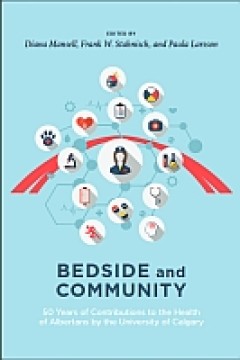
Bedside and community : 50 years of contributions to the health of Albertans …
The University of Calgary’s innovative and collaborative approach to health care education is celebrated in an interdisciplinary collection. Bedside and Community is the inside story of fifty years of health care and health research at the University of Calgary. Drawing on the first-person accounts of researchers, administrators, faculty, and students along with archival research, and faculty…
- Edition
- 9
- ISBN/ISSN
- 9781773850733
- Collation
- xix, 242p.
- Series Title
- -
- Call Number
- 610.70712338 BED s

Mary Warnock : ethics, education and public policy in post-war Britain
- Edition
- -
- ISBN/ISSN
- 9781800643406
- Collation
- viii, 350p. ; ill.
- Series Title
- -
- Call Number
- 192 GRA m
- Edition
- -
- ISBN/ISSN
- 9781800643406
- Collation
- viii, 350p. ; ill.
- Series Title
- -
- Call Number
- 192 GRA m
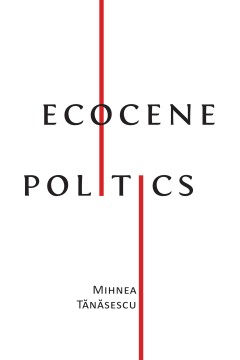
Ecocene Politics
Anchored in the diverse ecological practices of communities in southern Italy and Aotearoa/New Zealand, this book devises a unique and considered theoretical response to the shortcomings of global politics in the Ecocene—a new temporal epoch characterised by the increasingly frequent intrusion of ecological processes into political life. Dismantling the use of the term ‘Anthropocene’ as a…
- Edition
- -
- ISBN/ISSN
- 978-1-80064-316-1
- Collation
- vii, 195p.
- Series Title
- -
- Call Number
- 363.7 TAN e

Negotiating bioethics: the governance of UNESCO's bioethics programme
The sequencing of the entire human genome has opened up unprecedented possibilities for healthcare, but also ethical and social dilemmas about how these can be achieved, particularly in developing countries. UNESCO's Bioethics Programme was established to address such issues in 1993. Since then, it has adopted three declarations on human genetics and bioethics (1997, 2003 and 2005), set up nume…
- Edition
- -
- ISBN/ISSN
- 9780203101797
- Collation
- xvi, 192 p.
- Series Title
- -
- Call Number
- 174.2 ADE n

A climate of justice: An ethical eoundation for environmentalism
This open access book helps readers combine history, politics, and ethics to address the most pressing problem facing the world today: environmental survival. In A Climate of Justice, Marvin Brown connects the environmental crisis to basic questions of economic, social, and racial justice. Brown shows how our current social climate maintains systemic injustices, and he uncovers resources for ch…
- Edition
- -
- ISBN/ISSN
- 9783030773632
- Collation
- xix, 185p ; ill
- Series Title
- -
- Call Number
- 179.1 BRO a
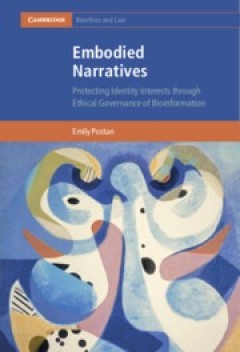
Embodied Narratives: Protecting Identity Interests through Ethical Governance…
Increasing quantities of information about our health, bodies, and biological relationships are being generated by health technologies, research, and surveillance. This escalation presents challenges to us all when it comes to deciding how to manage this information and what should be disclosed to the very people it describes. This book establishes the ethical imperative to take seriously the p…
- Edition
- -
- ISBN/ISSN
- 9781108652599
- Collation
- xiv, 316p: ill,
- Series Title
- Cambridge Bioethics and Law
- Call Number
- 610 EMI e

Ethics for A-level
What does pleasure have to do with morality? What role, if any, should intuition have in the formation of moral theory? If something is ‘simulated’, can it be immoral? This accessible and wide-ranging textbook explores these questions and many more. Key ideas in the fields of normative ethics, metaethics and applied ethics are explained rigorously and systematically, with a vivid writing…
- Edition
- -
- ISBN/ISSN
- 9781783743902
- Collation
- 245 p. : ill.. ; 24 cm
- Series Title
- -
- Call Number
- 170.71 DIM e
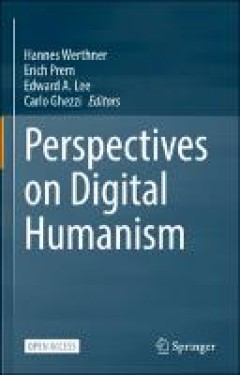
Perspectives on digital humanism
This open access book aims to set an agenda for research and action in the field of Digital Humanism through short essays written by selected thinkers from a variety of disciplines, including computer science, philosophy, education, law, economics, history, anthropology, political science, and sociology. This initiative emerged from the Vienna Manifesto on Digital Humanism and the associated le…
- Edition
- -
- ISBN/ISSN
- 9783030861445
- Collation
- xviii, 342 p. : ill.
- Series Title
- -
- Call Number
- 004 WER p

Big and little histories : sizing up ethics in historiography
This book introduces students to ethics in historiography through an exploration of how historians in different times and places have explained how history ought to be written and how those views relate to different understandings of ethics. No two histories are the same. The book argues that this is a good thing because the differences between histories are largely a matter of ethics. Looking …
- Edition
- -
- ISBN/ISSN
- 9780429399992
- Collation
- XI, 209 p.
- Series Title
- -
- Call Number
- 174.99072 HUG b
 Computer Science, Information & General Works
Computer Science, Information & General Works  Philosophy & Psychology
Philosophy & Psychology  Religion
Religion  Social Sciences
Social Sciences  Language
Language  Pure Science
Pure Science  Applied Sciences
Applied Sciences  Art & Recreation
Art & Recreation  Literature
Literature  History & Geography
History & Geography